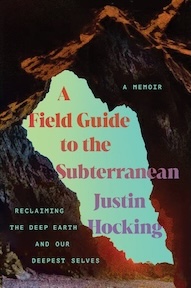Bookmonger: Voices on American democracy
Published 9:00 am Wednesday, November 1, 2023

- In the latest volume of his “Hidden History” series, Portland author and talk show host Thom Hartmann explores strategies and precedents of American democratic principles.
While it was dispiriting to watch Congress spend much of October floundering over the essential matter of who should become the new Speaker of the House, that should serve as a signal to resist cynicism in public discourse and re-engage in democracy.
Trending
As Americans living in this moment in history, it’s our turn to carry on the effort framed by our nation’s founders: “to form a more perfect union, establish justice, insure domestic tranquility, provide for the common defence, promote the general welfare, and secure the blessings of liberty to ourselves and our posterity … ’
To do that, we need to understand the issues, and when elections come around, we need to vote.
Two new books by Northwest authors provide historical context and guidance in how American democracy works.
Trending
Portland-based progressive radio talk show host Thom Hartmann has written a series of “Hidden History” books, explaining his take on America’s economic and political landscape. The latest in the series is “The Hidden History of American Democracy,” in which the author analyzes why and how America’s founding fathers crafted our form of government in the way they did.
Hartmann refutes the conventional assumption that Thomas Jefferson, James Madison and their colleagues based America’s democratic principles on models provided by ancient Greek and Roman civilizations.
Instead, he asserts that the authors of the Declaration of Independence and the U.S. Constitution drew significant inspiration from the Indigenous people who were already living throughout North America when European settlers first arrived.
Indigenous tribes, Hartmann writes, already “had figured out how to live in civilized society without the chains of oppression” — such as inequitable political systems or strict religious dicta.
Hartmann makes other startling assertions — that the three branches of government were not designed to be co-equal, for example, and that the country’s system of checks and balances is demonstrably false. This series offers provocative food for thought.
While Hartmann’s book takes a theoretical approach, Washington state Sen. Karen Keiser offers her own hard-earned experience as the starting point for her book, “Getting Elected Is the Easy Part.”
A Democrat, Keiser has served in the Legislature for nearly 30 years — long enough to know what it’s like to be in the minority party and the majority party. Either way, she knows the necessity of reaching across the aisle to find common ground with colleagues from different philosophical backgrounds.
Writing in a folksy style, Keiser cites Kenny Rogers lyrics (“You got to know when to hold ’em … ”) and admits that keeping in touch with constituents, especially when the Legislature is in session, is “a helluva lot of work.”
This no-nonsense primer would be useful for anyone considering a run for public office.
“The Hidden History of American Democracy” by Thom Hartmann
Berrett-Koehler Publishers — 194 pp — $19.95
“Getting Elected Is the Easy Part” by Karen Keiser
Basalt Books — 170 pp — $24.95









